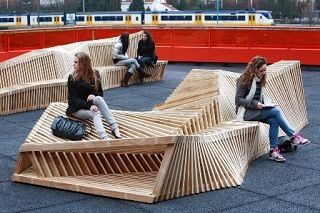From Guest Blogger “Gate Expectations” — Finding A Place For Eco-Products In A Traditional Business

The pace of construction doesn’t seem to slow down – especially if you visit a country making huge economic progress – China is a good example of this. But this simple view of the erosion of green space, the crowding of cities and the rise of pre-fabricated buildings doesn’t tell the full story.
Keeping Tradition In A Quickly-changing World
There have always been people who favour tradition. The way that many people embrace tradition is by combining previous practice with new methods – the evolution of many products comes from combining the old and new. Take for example skeuomorphic design – why would anyone want to have their computer icons look like real life objects? Well, those real life objects gave clues as to the purpose of the application, so you knew what to expect from each programme.
We make wooden garage doors at Inwood, made to measure for each project. Do our customers value the wood that we use? Of course they do. Our customers value the skills we have – they’re looking for a product that matches their requirements, and they trust our craftsmanship as well as our knowledge of the materials we use. They come to us for bespoke work – a common theme in construction – and they know that they’re not going to get mass-produced, low quality goods.
Sustainability In Everyday Products
When we first started mining the earth for natural resources, the average person wasn’t concerned about the longevity of the energy we were using. Now, mentions of green issues pervade our day to day shopping experiences. Beauty products, food and clothing are sold on their green credentials – eco-positive attributes are seen as an attractive thing for consumers.
People Pay For Eco-Quality
Not all businesses can produce such products. Short-term solutions might seem attractive to a small company or sole trader who wants to fend off poor cashflow or aggressive market forces. However, there will always be a customer segment that seeks quality products. This is where eco-aware products fit.
People need to encourage the demand for these products by continuing to look for sustainable solutions. But a solution should be just that. For an eco-aware product to properly compete and become a market leader, it does need to out-perform other products in its class. Eco products shouldn’t be “alternatives” or “substitutes” – they should be the number one, the most sought-after product.
Accoya wood is an example of this. It comes from a softwood (Radiata Pine), which means it grows to maturity relatively quickly – so we can grow a lot of it to fulfil demand. It’s treated with acetic acid, which makes a huge difference – this treatment makes the wood durable, so much so that it out-performs tropical hardwoods. Accoya is a shining example of how to make a eco product that outperforms others in its class – in fact, as classes of timber go, Accoya should be in a class of its own due to its qualities being greater than other Class 1 Timber types.
So this is how you find a place for an eco product in a traditional business sector:
- Find a way to make something sustainable
- Find a way to make material available for the mass market
- Make sure the material outperforms its competitors and isn’t just an “alternative”
It’s not easy to create an eco-aware product that outperforms others – but it’s certainly something worth having.
